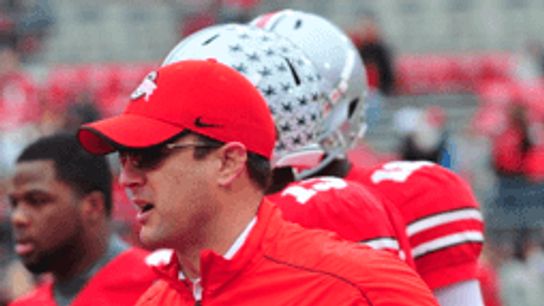The NCAA has an impossible job. In managing a sport as big and complicated as football, it's flatly not possible to create a rule book that fully pleases everyone. And oftentimes, solving one problem requires creating another one.
Texas head coach Tom Herman pointed out one problem he has with the new set of rules passed last week. He approved of the rule -- pending conference commissioner approval -- allowing a December signing period, but criticized the corresponding rule allowing for officials visits in April, May and June.
"Now you're dipping into our assistant coaches' quality of life and their well-being, so to speak," he told SiriusXM College Sports. "Last year I had eight Saturdays off and like 14 Sundays in a 365-day year (it was actually 366, but who's counting?). We usually start our summer vacation the week after Father's Day. That's time for our coaches to get away with their families and go be real dads and real husbands for a couple weeks. Now you're telling me I've got to recruit and host recruits all the way through the end of June? When do these coaches actually get to take him off of work? Two weeks in the beginning of July and that's it."
In the NCAA's defense: just because you can host official visits in late June does not mean you have to host official visits in late June. And, speaking as a former teenager, it seems most juniors would rather take their officials in April and May anyway -- when they have a great excuse to dump out of a Friday of classwork.
That said, if the next Jadeveon Clowney calls and wants to visit Texas but says the only free spot in his schedule falls in late June... what's he going to say?
Another thing to think about: official visits involve much more than assistant coaches. You're talking players to host recruits, a number of employees across the athletics department and many on the academic side, sometimes rising all the way up to the university president. Are all those people sticking around for a late June official visit?
Herman said the NCAA had its heart in the right place with each of the rules, but often robbed Peter to pay Paul. Another example? Ending two-a-days. Herman estimated he scheduled three two-a-days in two seasons as a head coach at Houston, and each of the second practices was in shorts.
Now, to make up for the lost practice time by limiting each session to one per day, the NCAA will move the starting date of training camp forward. This creates another problem.
"Our guys are literally getting no break from the end of their summer weight training to training camp, and then oh-by-the-way they're also in summer school and that goes until August 12 so they'll be in summer school for a good 14-to-15 days of training camp," he said.
Although, again, just because schools can open fall camp earlier doesn't mean they have to do so.
Still, Herman's interview sheds a light into the can't-win reality of solving the NCAA's game of regulatory Twister.
